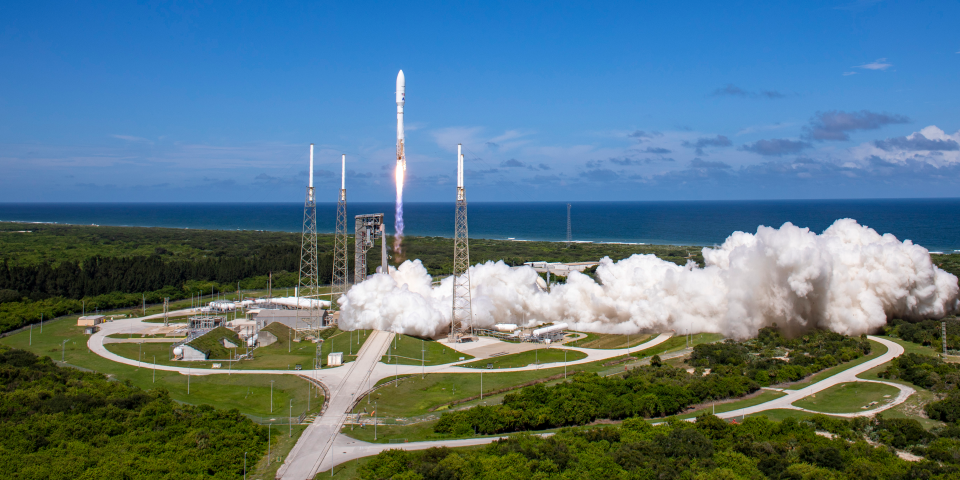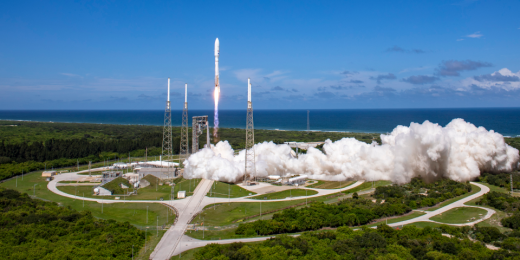Amazon’s first internet satellite launch was a success
Amazon’s first internet satellite launch was a success
ULA’s Atlas V rocket took Project Kuiper’s first two prototype satellites to low Earth orbit.

Amazon’s first satellite launch was a success, according to United Launch Alliance. The aerospace manufacturer’s Atlas V rocket took the first two Project Kuiper satellites to low Earth orbit on Friday. The mission, which is named Protoflight, lifted off at 2:06PM ET from Cape Canaveral Space Force Station in Florida.
Amazon has been working on Project Kuiper, its Starlink-esque internet satellite initiative, for quite some time. It previously planned to launch the prototypes by the end of last year.
The company sees Protoflight as a key learning opportunity, giving it the chance to record real-world (or, more accurately, offworld) data from space and add that to findings from lab and field testing. Amazon expects to gain more insight into how the network will perform across ground and space. This is also a test of satellite processing, launch and mission operations. Once the mission is over, Amazon will actively deorbit both satellites before they burn up in the atmosphere.
“We’ve done extensive testing here in our lab and have a high degree of confidence in our satellite design, but there’s no substitute for on-orbit testing,” Rajeev Badyal, Project Kuiper’s vice president of technology, said. “This is Amazon’s first time putting satellites into space, and we’re going to learn an incredible amount regardless of how the mission unfolds.”
Amazon says the aim of Project Kuiper is to offer fast and affordable broadband to unserved and underserved communities across the world. It plans to deploy more than 3,200 satellites over the next six years after it obtained FCC approval, and the KuiperSat-1 and KuiperSat-2 prototypes are the first iterations. It expects to launch production satellites in the first half of 2024 and start beta tests with some customers by the end of next year.
If you missed the launch, you can watch a replay of the livestream below. The rocket launches at around 26:05 into the video.
(11)



